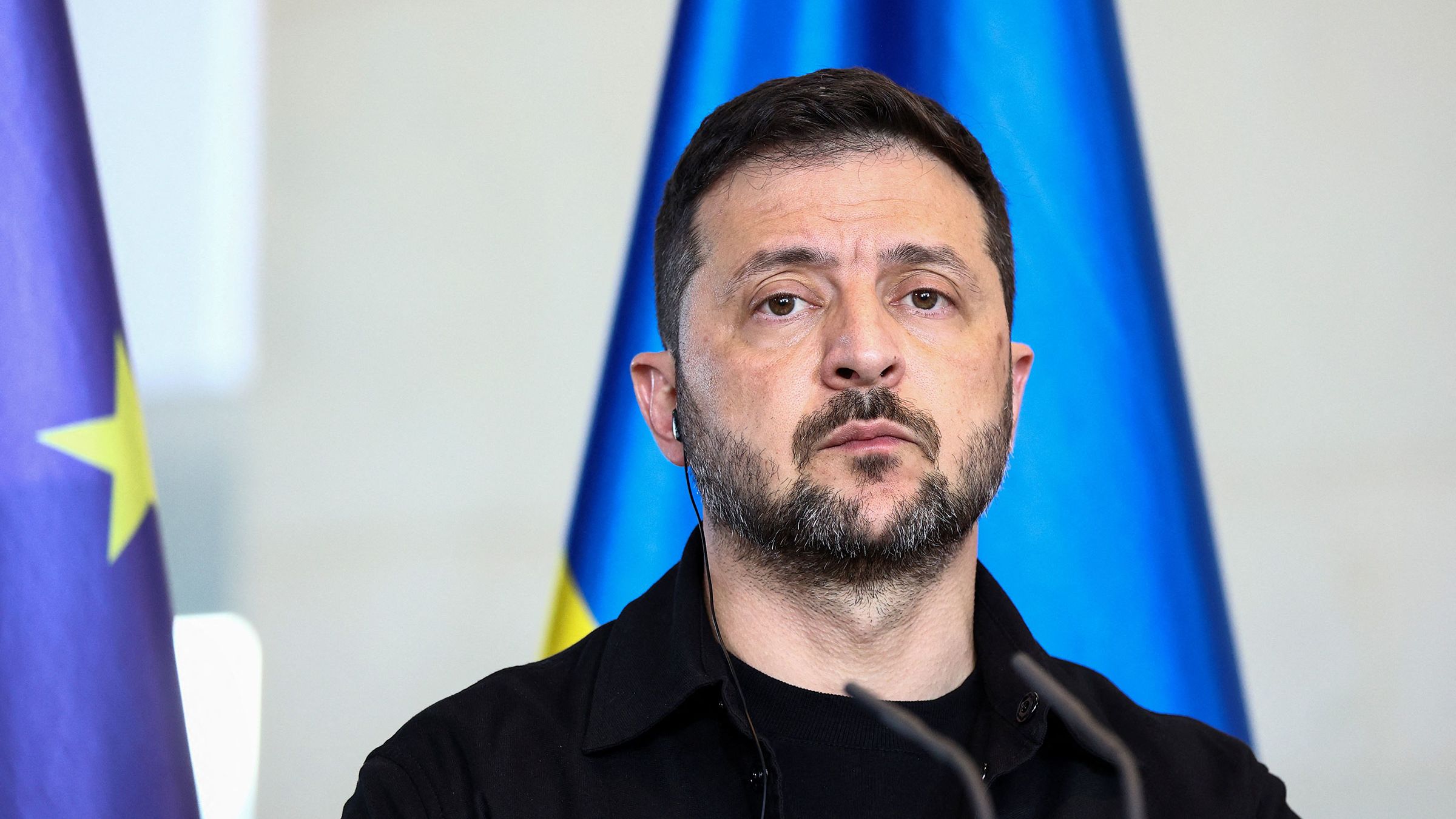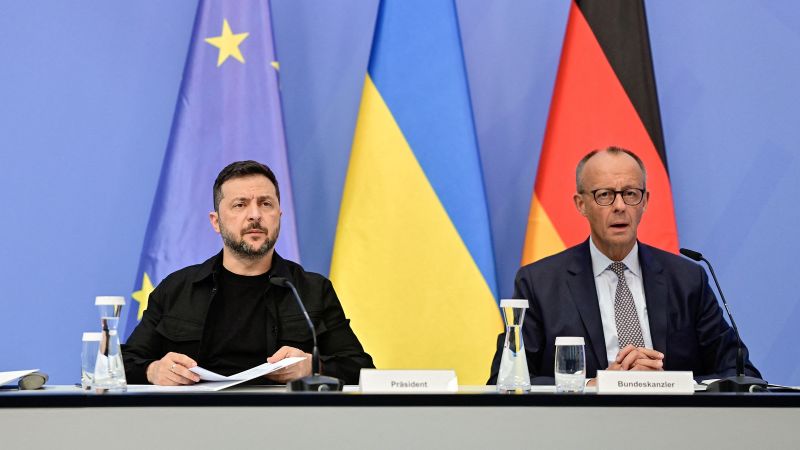European leaders urged US President Donald Trump on Wednesday not to strike a unilateral Ukraine peace deal with his Russian counterpart Vladimir Putin during their one-on-one meeting later this week in Alaska.
German Chancellor Friedrich Merz had convened a virtual summit with Trump, Ukrainian President Volodymyr Zelensky and several European leaders as fears mounted that Putin, a former KGB spy, would seek to bring the US president back round to seeing the war on his terms.
In a joint statement, Merz, French President Emmanuel Macron, and British Prime Minister Keir Starmer said the participants had reiterated to Trump four key points.
First, that meaningful peace talks can only take place after a ceasefire or a “lasting and significant cessation of hostilities.” Second, that Russia must face fresh sanctions if it does not agree to a ceasefire in Alaska. Third, that international borders must not be changed by force.
And, fourth, that Ukraine must have “robust and credible” security guarantees. “No limitations should be placed on Ukraine’s armed forces or on its cooperation with third countries. Russia could not have a veto against Ukraine’s pathway to EU and NATO,” the statement said.
Trump, who described the call as “very good,” told reporters that if his summit with Putin goes well, a follow-up meeting between the Russian president and Zelensky could happen “almost immediately” afterward.
“There’s a very good chance that we’re going to have a second meeting which will be more productive than the first. Because the first is: I’m going to find out where we are, what we’re doing,” Trump said during an appearance at the Kennedy Center.
Standing alongside Zelensky, Merz told a press conference following the virtual meeting that “we made it clear that Ukraine must be at the table at the next meeting.”
He added: “We want things to go in the right sequence: We want a ceasefire at the very beginning, and then a framework agreement must be drawn up.”

Zelensky said Trump had voiced his support for Europe’s demand for an initial ceasefire before talks to reach a full settlement, and said that fresh sanctions should be slapped on Russia if Putin leaves Alaska without agreeing to a ceasefire.
Although Trump said bluntly on Monday that “there’ll be some land swapping going on,” Merz stressed that legal recognition of Ukrainian territory is “not up for discussion.”
“The principle that borders may not be changed by force must continue,” Merz said.
During a meeting in Moscow last week with Witkoff, Putin proposed a plan that would require Ukraine to cede the eastern Donbas region, most of which is occupied, in exchange for a ceasefire, according to US officials. The exact details of the plan have been shrouded in confusion since reports of it first emerged.
Last week, Trump had given Putin the deadline of August 8 to agree to a ceasefire or face punishing new sanctions on its “shadow fleet,” which has enabled Moscow to circumvent sanctions on its oil exports and finance its war. After the deadline ended without consequence, Trump announced the summit with Putin this Friday.
Putin has long tried to shrug off the effect of sanctions. But Zelensky said Wednesday that the Russian leader was bluffing. “Sanctions are hitting Russia’s war economy hard,” he said after the call with Trump. “Putin can’t fool anyone.”
A European official familiar with the call said that they got the impression the “threat is on” of secondary sanctions against Russia if the upcoming Alaska talks prove fruitless.
It is “obvious that the India sanctions had an effect,” the official said, referring to Trump’s pledge of issuing a 25% additional tariff on India for buying Russian oil. That tariff is expected to go into effect in the weeks ahead.

‘Putin cannot fool anyone’: Zelensky says Putin is bluffing about the impact of sanctions

Alexander Gabuev, director of the Carnegie Russia Eurasia Center, told CNN that Zelensky is urging Trump to use the “stick” he wields over Russia.
“The key issue is the stick that President Trump allegedly has. This could be either more economic sanctions (on Russia), or more military support to Ukraine,” Gabuev said. “That’s where President Zelensky wants to be optimistic that the Russian economy is crumbling.”
But Ukraine is facing its own pressures, he said. This week, small groups of Russian troops pierced parts of Ukraine’s increasingly porous front lines in the eastern Donetsk region, to the alarm of Ukrainian officials and military bloggers. If Russia’s economy is creaking, so is Ukraine’s front line, Gabuev said.
“The timeline here is really crucial,” he added. “Putin is confident that he has another 12 to 18 months, and that Ukraine doesn’t have that.”

